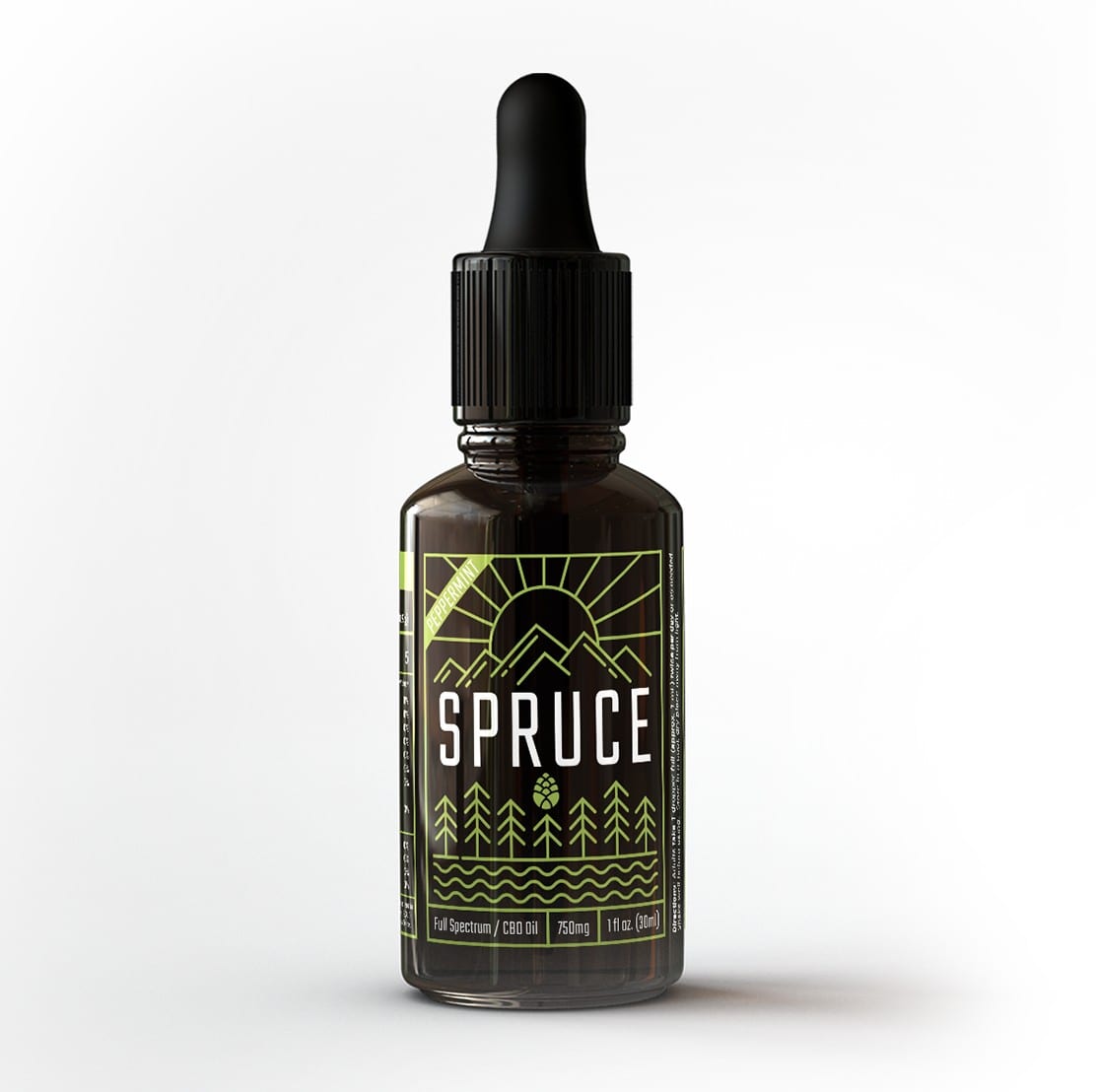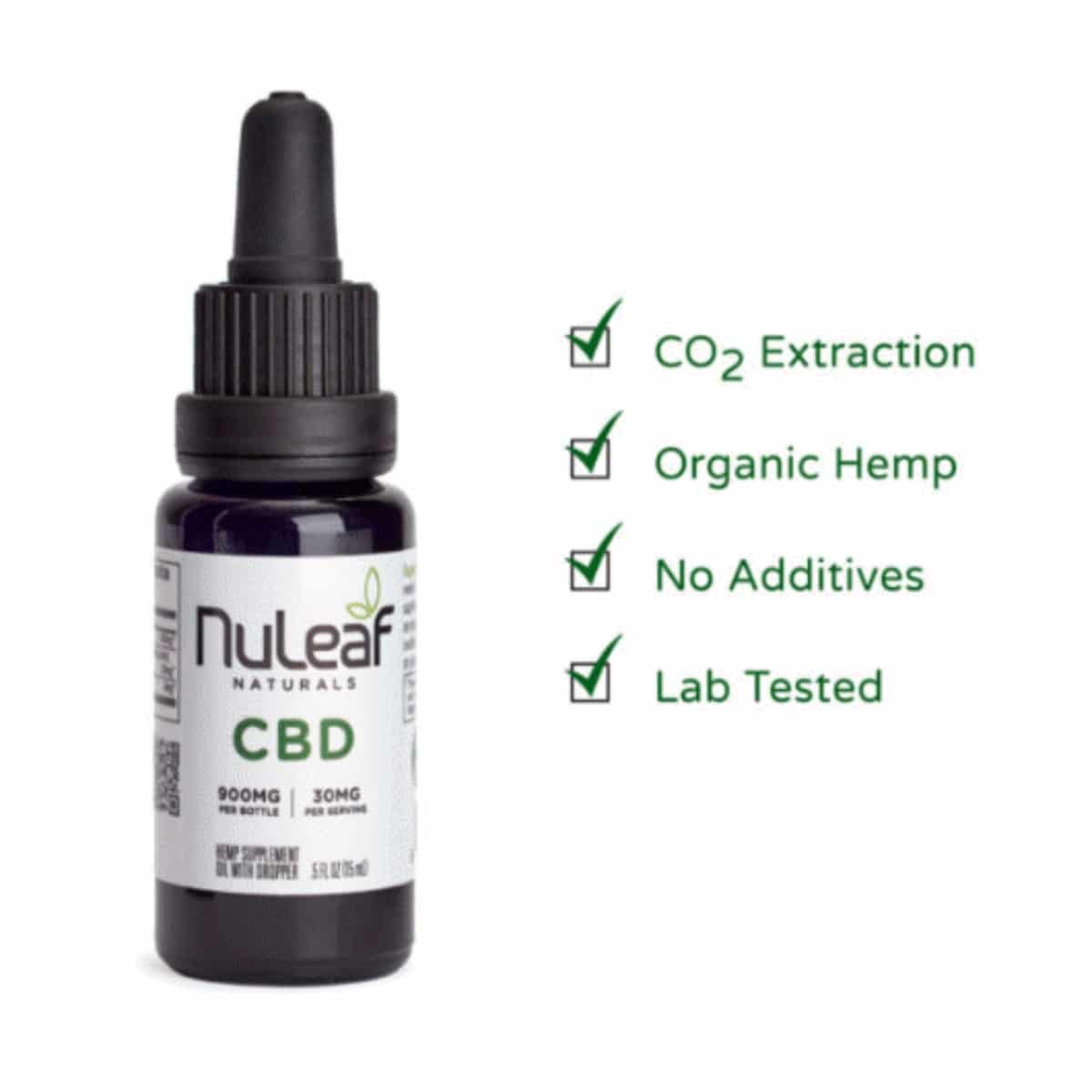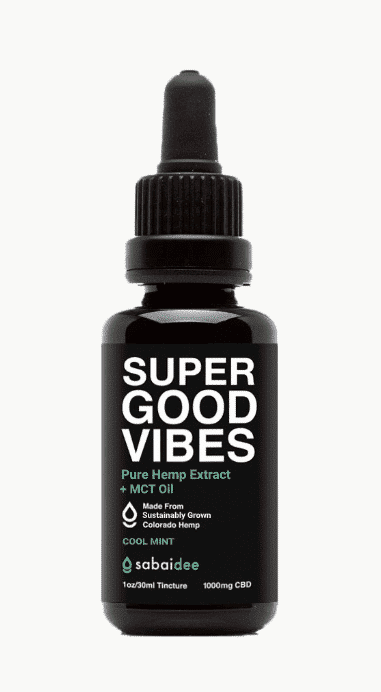
Can a Daily Dose of CBD Help With Parkinson’s Disease?
- CBD may have therapeutic effects on Parkinson’s disease (PD), especially on the non-motor symptoms associated with the neurodegenerative disease.
- A study in 2009 has found that CBD improved psychosis and decreased delusions, hallucinations, and sleep disturbances in Parkinson’s disease patients(1).
- A study published in The International Journal of Neuroscience reported CBD’s positive effects on motor symptoms, such as tremors, of the test subjects with Parkinson’s disease(2).
- A study published in the journal Frontiers in Pharmacology suggests that CBD may be a useful preventive therapy for Parkinson’s disease. However, the researchers acknowledge that it is challenging to diagnose PD in its early stages(3).
- Current research shows that CBD has great potential in the treatment of Parkinson’s disease. However, further studies need to be done to establish CBD’s benefits for Parkinson’s disease.
Best CBD Oils for Parkinson’s Disease
Spruce 750mg Lab Grade CBD Oil
Specifically formulated to be more palatable to CBD users
-
Overall Clinical Score
99%Editor's Pick -
Score
breakdown
-
Summary
Each bottle of the 750mg CBD oil tincture contains 25mg of CBD per dropper full. The oil is peppermint flavor to mask any unpleasant tastes related to CBD.
Pros
Cons
-
Mid-strength
-
Natural peppermint flavor
-
Made from 100% organic and natural ingredients
-
No other flavors
-
-
Features
Discount pricing available? 20% Off Coupon Code: CBDCLINICALS Source Source of HempKentucky, USA & North Carolina, USA Form Oil Tincture Ingredients Organic Hemp Seed Oil, Full Spectrum CBD Oil Type Type of CBDFull Spectrum Extraction Extraction MethodMoonshine extraction method How to take it Under tongue Potency Potency - CBD Per Bottle750 mg per bottle Carrier Oil Organic Hemp Seed Oil Concentration CBD Concentration Per Serving25mg of CBD per dropper full (1ml) Drug Test Contains 0.3% THC but there is a chance you may test positive for marijuana Flavours Peppermint Price Range $89 ($75.65 for subscriptions, 15% discount from regular price) $/mg CBD Price ($/mg)$0.12/mg ($0.10/mg with subscription) Shipping Shipping/Time to delivery2-4 business days (first class USPS) Lab Tests Lab Testing TransparencyThird Party Lab Tested post formulation for safety and potency, available on website Contaminants Organic, Non-GMO, no pesticides, no herbicides, no solvents or chemical fertilizers, No preservatives or sweeteners Allergens Vegan, Gluten free Refund policy Within 30 days Recommended for New CBD users Countries served USA only (all 50 states)
NuLeaf Naturals 900mg Full Spectrum Hemp CBD Oil
Perfect for anyone who are looking for CBD products that promote a healthy body and mind.
-
Overall Clinical Score
99%Best Organic -
Score
breakdown
-
Summary
Natural remedy for various illnesses. NuLeaf Naturals’ CBD oil is a whole-plant extract containing a full spectrum of naturally occurring synergistic cannabinoids and terpenes.
Pros
Cons
-
Pure CBD hemp
-
All natural
-
Approximately 300 drops total
-
No other flavors
-
-
Features
Discount pricing available? 20% Off Coupon Code: CBDCLINICALS20 Source Source of HempColorado, USA Form Oil Tincture Ingredients Full Spectrum Hemp Extract, Organic Virgin Hemp Seed Oil Type Type of CBDFull Spectrum CBD Extraction Extraction MethodCO2 Method How to take it Under the tongue for approximately 30 seconds before swallowing Potency Potency - CBD Per Bottle900mg per bottle Carrier Oil Organic Hemp Oil Concentration CBD Concentration Per Serving60mg per dropper full (1ml) Drug Test Contains 0.3% THC but there is a chance you may test positive for marijuana Flavours Natural Price Range $99 - $434 $/mg CBD Price ($/mg)$0.08 - $0.13 Shipping Shipping/Time to delivery2-3 Days via USPS Lab Tests Lab Testing TransparencyThird Party Lab Tested post formulation for safety and potency, available on website Contaminants No additives or preservatives, Non-GMO, NO herbicides, pesticides, or chemical fertilizers Allergens Not specified Refund policy Within 30 days Recommended for Health-conscious persons Countries served USA (all 50 states) and over 40 countries including Australia, Azerbaijan, Beliza, Bosnia & Herzegovina, Brazil, Chile, China, Croatia, Czech Republic, Estonia, France, Hong Kong, Hungary, Ireland, Israel, Japan, Latvia, Lebanon, Lithuania, Macao, Malaysia, Malta, Netherlands, New Zealand, Oman, Paraguay, Poland, Portugal, Saudi Arabia, Serbia, Singapore, South Korea, Sweden, Switzerland, United Arab Emirates, United Kingdom, Uruguay, and many more.
cbdMD CBD Oil Tinctures
Uses USA hemp that is grown on non-GMO farms, and is both vegan and gluten-free
-
Overall Clinical Score
99%Natural Alternative -
Score
breakdown
-
Summary
cbdMD’s CBD oil tinctures are made using only CBD sourced from medical hemp and MCT oil as a carrier oil. Tinctures are offered in orange, mint, natural, and berry flavors. Safe for daily use, the oil tinctures are packaged with a built-in rubber dropper to adjust CBD dosage easily. The packaging is made to be easy to transport and discreet to use.
Pros
Cons
-
Plenty of concentrations to choose from for all people with various kinds of needs
-
Has vegan, organic, and gluten-free ingredients
-
Affordable pricing
-
Affordable pricing
-
cbdMD uses MCT as its carrier oil so individuals who are allergic with coconuts should consider other brand options
-
-
Features
Discount pricing available? 15% Off Coupon Code: cbdMD15 Source Source of HempKentucky, USA Form Oil Tincture Ingredients Cannabidiol (CBD), MCT Oil, and Flavoring Type Type of CBDBroad Spectrum Extraction Extraction MethodCO2 extraction method How to take it Under tongue Potency Potency - CBD Per Bottle300 mg - 7500 mg / 30 ml bottle, 1000 mg - 1500 mg / 60 ml bottle Carrier Oil Organic Coconut MCT Oil Concentration CBD Concentration Per Serving30 ml: 300 mg - 10 mg per dropper (1ml), 750 mg - 25 mg per dropper (1ml), 1500 mg - 50 mg per dropper (1ml), 3000 mg - 100 mg per dropper (1ml), 5000 mg - 166.6 mg per dropper (1ml), 7500 mg - 250 mg per dropper (1ml), 60 ml: 1000 mg - 16.6 mg per dropper (1ml), 1500 mg - 25 mg per dropper (1ml) Drug Test Containing less than 0.3% THC, there are still trace amounts Flavours Natural, Berry, Orange and Mint Price Range 30 ml Bottles: $29.99 for 300 mg, $69.99 for 750 mg, $99.99 for 1500 mg, $149.99 for 3000 mg, $239.99 for 5000 mg, $339.99 for 7500 mg 60 ml Bottles: $74.99 for 1000 mg, $99.99 for 1500 mg $/mg CBD Price ($/mg)30 ml - $0.05 - $0.10, 60 ml - $0.06 - $0.07 Shipping Shipping/Time to delivery2-5 Business days (via Fedex) Lab Tests Lab Testing TransparencyThird Party Lab Tested post formulation for safety and potency, available on website Contaminants 100% organic, non-GMO, and vegan-certified Allergens Vegan, Gluten free Refund policy Within 30 days Recommended for CBD users with different needs Countries served USA only (all 50 states)
Sabaidee Super Good Vibes CBD Oil
4x the strength of a regular cbd oil
-
Overall Clinical Score
99%Best Value -
Score
breakdown
-
Summary
Super Good Vibes CBD Oil provides the purest and highest quality Cannabidiol (CBD) on the market as well as other high quality phytocannabinoids, terpenes, vitamins, omega fatty acids, trace minerals, and other beneficial for your health elements, which all work together to provide benefits.
Pros
Cons
-
Extra strong
-
Significant benefits with just a few drops
-
100% Natural ingredients
-
No other flavors
-
-
Features
Discount pricing available? 15% Off Coupon Code: CBDCLINICALS15 Source Source of HempColorado, USA Form Oil Tincture Ingredients Cannabidiol (CBD), Coconut Medium-chain triglycerides (MCT) Oil, Peppermint oil Type Type of CBDBroad Spectrum Extraction Extraction MethodCO2-extraction How to take it Using 1-3 servings per day as needed is a good start to determine how much you need Potency Potency - CBD Per Bottle1000 mg per bottle Carrier Oil Coconut MCT Oil Concentration CBD Concentration Per Serving33.5 mg per dropper (1ml) Drug Test Contains 0.3% THC but there is a chance you may test positive for marijuana Flavours Peppermint Price Range Single Bottle - $119.95, 2-Pack - $109.97 each, 3-Pack - $98.31 each, 6-Pack - $79.99 each $/mg CBD Price ($/mg)Single bottle - $0.010, 2-Pack - $0.011, 3-Pack - $0.009, 6-Pack - $0.007 Shipping Shipping/Time to delivery3-5 Business days Lab Tests Lab Testing TransparencyThird Party Lab Tested post formulation for safety and potency, available on website Contaminants Contaminant-free Allergens Vegan and Gluten-free Refund policy Within 30 days Recommended for Patients who are looking for serious CBD oil support Countries served USA only (all 50 states)
Why People Are Turning to CBD for Parkinson’s Disease
Parkinson’s disease (PD) is a neurodegenerative disease characterized by low dopamine levels in the brain. This disorder happens because of the impairment of dopamine-producing brain cells in an area of the brain, called substantia nigra(4).
Dopamine is a chemical that is responsible for managing a person’s movement and emotional responses.
Next to Alzheimer’s disease, PD is the second most prevalent degenerative disorder of the central nervous system(5).
Currently, there is no absolute cure for Parkinson’s disease. The most common treatment is dopamine-replenishing medicines such as levodopa.
Levodopa helps manage the motor symptoms of Parkinson’s disease effectively. However, it is found to be less effective in treating non-motor symptoms of the disorder, especially in the late stage(6).
According to the Parkinson’s Foundation, the disease’s non-motor symptoms include depression, anxiety, fatigue, sleep disorders, hallucinations, and vision problems(7).
Long-term use of levodopa could also bring about side effects, such as low blood pressure, nausea, vomiting, lightheadedness, loss of appetite, confusion, and dyskinesia(8).
Dyskinesia is characterized by abnormal and involuntary movements that can be caused by the prolonged use of levodopa(9).
Research has found that the use of levodopa early in one’s treatment increases one’s risk of developing dyskinesia(10).
A 2010 study said that in extreme cases of levodopa-induced dyskinesia, the adverse effects may outweigh the benefits a patient gets from using the drug as a treatment.
To avoid long-term motor complications in their patients, some doctors prescribe levodopa with caution and, if possible, as a second-line strategy in the treatment of Parkinson’s disease(11).
Because of treatment issues, like the risks posed by levodopa use, more patients are exploring alternative treatment options, such as cannabidiol or CBD oil.
CBD is the active ingredient of the cannabis plant that is non-psychoactive. The other primary component, tetrahydrocannabinol (THC), is the active ingredient in medical cannabis that can get people high.
Research conducted in 2020 and published in the Journal of Psychopharmacology has found that CBD attenuated the anxiety and tremors of the test subjects who had PD(12).
The patients, who were over 60 years old, underwent a public speaking test. Those who took 300 mg of CBD before performing the speech had fewer reported symptoms than the placebo group. A placebo has no therapeutic effect and is often used in the control group of clinical experiments.
Tremors and anxiety are symptoms of Parkinson’s disease.
In the later stages of PD, patients could develop hallucinations and psychotic symptoms.
A 2009 study concluded that CBD was effective in improving psychosis and decreasing delusions, sleep disturbances, and hallucinations(13). The researchers did not observe harmful side effects from the use of CBD.
Another study has discovered marked improvements in the quality of life and well-being of test subjects who were administered with 300 mg of CBD daily, throughout the clinical test period(14).
It is important to note that the test subjects had no psychiatric comorbidities (occurrence where a patient has overlapping medical conditions).
During the early stages of the disease, Parkinson’s patients may develop dystonia, a movement symptom characterized by repetitive spasms, muscle twisting, and cramps(15).
In a study aimed at exploring the beneficial effects of CBD in treating Parkinson’s disease, the researchers initially gave five patients with dystonic movement disorders low doses of CBD(16).
Over six weeks, the dosage of CBD was increased from 100 mg to 600 mg daily. The CBD products were given along with standard medications.
The researchers reported that CBD doses over 300 mg per day improved hypokinesia, resting tremors, and the dystonia of the test subjects.
Hypokinesia is characterized by no movement (akinesia) or slow movement (bradykinesia)(17). It is a condition that impacts the motor function of patients with Parkinson’s disease and is caused by a disruption in the basal ganglia.
Basal ganglia are nuclei found in the brain that are responsible for the coordination of movement.
A 2018 study suggests that CBD’s positive effects in Parkinson’s disease may be more preventive than therapeutic(18). The study emphasizes that CBD could potentially be more effective as a preventive strategy.
The challenge in preventive PD therapy is that it is difficult to diagnose the disease in its early stages.
The researchers also underscore that, in most clinical trials, CBD is given to the test subjects who have already experienced a substantial progression of Parkinson’s disease. For this reason, conflicting results are observed from studies that examine whether CBD is effective in treating the neurodegenerative disease.
How CBD Oil Works to Alleviate Symptoms of Parkinson’s Disease
According to a 2017 study, the manipulation of the endocannabinoid system (ECS) may have an essential role in the treatment of the symptoms of Parkinson’s disease(19).
The ECS modulates several physiological functions, like mood, motor control, and cognition. The cannabinoid receptors of the ECS, particularly cannabinoid receptor 1, are abundant in the basal ganglia(20).
The study suggests that manipulating the ECS could improve motor symptoms and other Parkinson’s disease symptoms.
One way to manipulate the ECS is through the introduction of laboratory-derived or medical marijuana-derived cannabinoids in the body. The primary cannabinoids that come from the marijuana plant (Cannabis Sativa) are CBD and THC.
It has been suggested in the studies mentioned above that CBD might be helpful in the treatment of Parkinson’s disease.
Common symptoms of Parkinson’s disease include the following(21):
Early Symptoms
- Tremor (involuntary shaking of hands or voice)
- Bradykinesia (slowness of movement)
- Reduced coordination
- Shuffling gait (posture changes)
- Fixed facial expressions (caused by changes in facial muscle nerves)
- Handwriting changes
- Loss of the sense of smell
- Sleep problems
Other common symptoms
- Depression
- Mood changes
- Difficulty swallowing and chewing
- Urination problems
- Constipation
- Skin problems
Parkinson’s disease may, later on, develop into Parkinson’s disease dementia. This condition affects a person’s cognitive functions, including remembering things, paying attention, or communicating with others(22).
CBD for Inflammation
According to Dr. Rebecca Gilbert, Vice President and Chief Scientific Officer of the American Parkinson Disease Association, inflammation has an essential role in the progression of Parkinson’s disease(23).
One of the causes of PD is the accumulation of Lewy bodies, clumps of protein that can cause complications in different functions, like thinking, mood, behavior, and movement.
The abnormal deposits of Lewy bodies can trigger inflammatory responses, which can result in further disease progression.
A study in 2009 concluded that cannabinoids, like CBD, had anti-inflammatory properties that can suppress inflammation(24).
CBD for Anxiety and Depression
Parkinson’s disease includes non-motor symptoms, such as the development of anxiety and depression.
A study in 2017 outlines the use of cannabis-related products, like CBD, to treat psychiatric disorders, like anxiety, psychosis, and depression(25). The study outlines CBD’s neuroprotective effects, which can potentially have therapeutic effects on Parkinson’s disease.
CBD for Better Sleep
One of the significant symptoms of Parkinson’s disease is the occurrence of sleep problems.
In 2014, researchers found that the administration of CBD for six weeks had therapeutic effects on the rapid eye movement (REM) sleep behavior disorder of four PD patients(26).
Patients with PD usually have sleep disturbances, like REM sleep behavior disorder. This condition may alarm PD family members as it causes patients to violently act out when vivid and unpleasant dreams occur(27).
The Pros and Cons of CBD Oil for Parkinson’s Disease
The Pros
- Preclinical trials, observational studies, and clinical trials on human and animal models have revealed CBD’s therapeutic effects on Parkinson’s disease.
- Compared to the usual medications for PD like levodopa, CBD has a more favorable safety profile(28).
- To date, there is no recorded case of CBD dependence in humans(29). Hence, it is not a substance that has the potential for abuse.
The Cons
- Further research needs to be made on CBD use, especially as a preventive therapy for Parkinson’s disease.
- CBD use also has side effects, such as diarrhea, tiredness, and changes in weight or appetite(30).
- The United States Food and Drug Administration (US FDA) has not approved the use of CBD in treating Parkinson’s disease.
- Due to the lack of FDA regulation, incidences of mislabeled CBD products are prevalent, especially products that are sold online(31).
How CBD Oil Compares to Alternative Treatments for Parkinson’s Disease
There are various alternative treatments for Parkinson’s disease. These include massages, acupuncture, yoga, and meditation(32).
While these alternative remedies have therapeutic benefits, especially on Parkinson’s symptoms, like chronic pain due to movement impairments, CBD use proves to have more benefits.
CBD may aid in alleviating some of the motor and non-motor symptoms of Parkinson’s disease, as shown in the studies previously mentioned.
How to Choose the Right CBD for Parkinson’s Disease
The use of CBD oil may be helpful in the treatment of Parkinson’s disease. There are three types to choose from, namely, full-spectrum CBD oil, broad-spectrum, and isolates.
Full-spectrum CBD oil is the most recommended, as its use of all the ingredients of the cannabis plant is believed to produce an entourage effect.
The entourage effect is the synergy of the trace amounts of THC, flavonoids, fatty acids, and essential oils. These active ingredients work together to give maximum therapeutic benefits to users.
THC may cause a high on users. Drug tests can also detect it. Patients who want to avoid this risk may use broad-spectrum CBD oils. This type of oil contains all the ingredients of a full-spectrum oil except for THC.
PD patients who want to use pure isolated cannabidiol may avail of CBD isolates.
CBD Dosage for Parkinson’s Disease
Because of the lack of US FDA approval, the use of CBD has no standard dosage chart. The dosing rule is to begin with small amounts of CBD. If there are no adverse effects, the CBD dosage may be gradually increased.
According to the studies mentioned above, 300 mg of CBD was well-tolerated in Parkinson’s disease patients.
How to Take CBD Oil for Parkinson’s Disease
Patients of Parkinson’s disease may take CBD in various ways. These include:
- CBD oils and tinctures (drops) – These may be applied under the tongue for more efficacy. These formats are best for PD patients who have difficulty swallowing.
- CBD capsules
- CBD edibles, like gummies
- CBD lotions and creams are best used during massages to relax stiff joints and painful body parts
- CBD vape pens – The inhalation of CBD gives almost instantaneous effects. However, vaping is not recommended for PD patients because the method may damage the lungs(33).
Conclusion
Parkinson’s disease is challenging to treat because it is hard to detect in its early stages. When the disease is diagnosed, it usually has already progressed severely.
Levodopa, the most commonly used medication in managing Parkinson’s disease, has adverse side effects, especially when used long-term. It is beneficial in treating the motor symptoms of the disease. However, it is not as effective in alleviating its non-motor symptoms.
CBD has a vast potential in the management of Parkinson’s disease. While CBD helps treat its non-motor symptoms, it can also help enhance PD patients’ motor functions.
Before adding CBD to a patient’s medication regimen, it is essential to consult a medical professional first.
- Zuardi, A W et al. “Cannabidiol for the treatment of psychosis in Parkinson’s disease.” Journal of psychopharmacology (Oxford, England) vol. 23,8 (2009): 979-83. doi:10.1177/0269881108096519
- Consroe, P et al. “Open-label evaluation of cannabidiol in dystonic movement disorders.” The International Journal of Neuroscience vol. 30,4 (1986): 277-82. doi:10.3109/00207458608985678
- Peres, Fernanda F et al. “Cannabidiol as a Promising Strategy to Treat and Prevent Movement Disorders?.” Frontiers in pharmacology vol. 9 482. 11 May. 2018, doi:10.3389/fphar.2018.00482
- “What Is Parkinson’s?” Parkinson’s Foundation, www.parkinson.org/understanding-parkinsons/what-is-parkinsons.
- Gonzalez-Usigli, Hector A., et al. “Parkinson Disease (PD) – Brain, Spinal Cord, and Nerve Disorders.” MSD Manual Consumer Version, MSD Manuals, www.msdmanuals.com/home/brain,-spinal-cord,-and-nerve-disorders/movement-disorders/parkinson-disease-pd.
- Fabbri, M., Coelho, M., Guedes, L. C., Chendo, I., Sousa, C., Rosa, M. M., Abreu, D., Costa, N., Godinho, C., Antonini, A., & Ferreira, J. J. (2017). Response of non-motor symptoms to levodopa in late-stage Parkinson’s disease: Results of a levodopa challenge test. Parkinsonism and Related Disorders, 39, 37-43. https://doi.org/10.1016/j.parkreldis.2017.02.007
- “Non-Movement Symptoms.” Parkinson’s Foundation, www.parkinson.org/Understanding-Parkinsons/Non-Movement-Symptoms.
- “Levodopa.” Parkinson’s Foundation, www.parkinson.org/Understanding-Parkinsons/Treatment/Prescription-Medications/Levodopa.
- Pandey, S., & Srivanitchapoom, P. (2017). Levodopa-induced Dyskinesia: Clinical Features, Pathophysiology, and Medical Management. Annals of Indian Academy of Neurology, 20(3), 190–198. https://doi.org/10.4103/aian.AIAN_239_17
- Tambasco, N., Simoni, S., Marsili, E., Sacchini, E., Murasecco, D., Cardaioli, G., Rossi, A., & Calabresi, P. (2012). Clinical aspects and management of levodopa-induced dyskinesia. Parkinson’s disease, 2012, 745947. https://doi.org/10.1155/2012/745947
- Poewe, Werner et al. “Levodopa in the treatment of Parkinson’s disease: an old drug still going strong.” Clinical interventions in aging vol. 5 229-38. 7 Sep. 2010, doi:10.2147/cia.s6456
- de Faria, Stephanie Martins et al. “Effects of acute cannabidiol administration on anxiety and tremors induced by a Simulated Public Speaking Test in patients with Parkinson’s disease.” Journal of psychopharmacology (Oxford, England) vol. 34,2 (2020): 189-196. doi:10.1177/0269881119895536
- Zuardi, A W. 2009. op. cit.
- Chagas, Marcos Hortes N et al. “Effects of cannabidiol in the treatment of patients with Parkinson’s disease: an exploratory double-blind trial.” Journal of psychopharmacology (Oxford, England) vol. 28,11 (2014): 1088-98. doi:10.1177/0269881114550355
- “Dystonia.” Parkinson’s Foundation, www.parkinson.org/Understanding-Parkinsons/Symptoms/Movement-Symptoms/Dystonia.
- Consroe, P. 1986. op. cit.
- Lang, Catherine E. “(THIRD EDITION), Mosby, 2012, www.sciencedirect.com/science/article/pii/B9780323029483000249.
- Peres, Fernanda F et al. “Cannabidiol as a Promising Strategy to Treat and Prevent Movement Disorders?.” Frontiers in pharmacology vol. 9 482. 11 May. 2018, doi:10.3389/fphar.2018.00482
- Stampanoni Bassi, Mario et al. “Cannabinoids in Parkinson’s Disease.” Cannabis and cannabinoid research vol. 2,1 21-29. 1 Feb. 2017, doi:10.1089/can.2017.0002
- Stampanoni Bassi, Mario et al. “Cannabinoids in Parkinson’s Disease.” Cannabis and cannabinoid research vol. 2,1 21-29. 1 Feb. 2017, doi:10.1089/can.2017.0002
- Mayo Clinic. (2018, June 30). Parkinson’s Disease. Retrieved from https://www.mayoclinic.org/diseases-conditions/parkinsons-disease/symptoms-causes/syc-20376055
- Parkinson’s Disease and Dementia. (n.d.). Retrieved from https://www.hopkinsmedicine.org/health/conditions-and-diseases/parkinsons-disease/parkinsons-disease-and-dementia
- Gilbert, Rebecca. “The Role of Inflammation in Parkinson’s Disease.” APDA, 12 June 2018, www.apdaparkinson.org/article/the-role-of-inflammation-in-parkinsons-disease/.
- Nagarkatti, Prakash et al. “Cannabinoids as novel anti-inflammatory drugs.” Future medicinal chemistry vol. 1,7 (2009): 1333-49. doi:10.4155/fmc.09.93
- Campos, Alline C et al. “Plastic and Neuroprotective Mechanisms Involved in the Therapeutic Effects of Cannabidiol in Psychiatric Disorders.” Frontiers in pharmacology vol. 8 269. 23 May. 2017, doi:10.3389/fphar.2017.00269
- Chagas, M. H., Eckeli, A. L., Zuardi, A. W., Pena-Pereira, M. A., Sobreira-Neto, M. A., Sobreira, E. T., Camilo, M. R., Bergamaschi, M. M., Schenck, C. H., Hallak, J. E., Tumas, V., & Crippa, J. A. (2014). Cannabidiol can improve complex sleep-related behaviours associated with rapid eye movement sleep behaviour disorder in Parkinson’s disease patients: a case series. Journal of clinical pharmacy and therapeutics, 39(5), 564–566. https://doi.org/10.1111/jcpt.12179
- Mayo Clinic Staff. “REM Sleep Behavior Disorder.” Mayo Clinic, Mayo Foundation for Medical Education and Research, 18 Jan. 2018, www.mayoclinic.org/diseases-conditions/rem-sleep-behavior-disorder/symptoms-causes/syc-20352920.
- Iffland, Kerstin, and Franjo Grotenhermen. “An Update on Safety and Side Effects of Cannabidiol: A Review of Clinical Data and Relevant Animal Studies.” Cannabis and cannabinoid research vol. 2,1 139-154. 1 Jun. 2017, doi:10.1089/can.2016.0034
- “CANNABIDIOL (CBD) Critical Review Report.” World Health Organization, 2018.Parkinson’s Foundation. op. cit.
- Iffland, K. op. cit.
- Freedman, Daniel A, and Anup D Patel. “Inadequate Regulation Contributes to Mislabeled Online Cannabidiol Products.” Pediatric neurology briefs vol. 32 3. 18 Jun. 2018, doi:10.15844/pedneurbriefs-32-3
- Donley, S., McGregor, S., Wielinski, C., & Nance, M. (2019). Use and perceived effectiveness of complementary therapies in Parkinson’s disease. Parkinsonism & related disorders, 58, 46–49. https://doi.org/10.1016/j.parkreldis.2018.08.003
- “Outbreak of Lung Injury Associated with the Use of E-Cigarette, or Vaping Products.” Centers for Disease Control and Prevention, Centers for Disease Control and Prevention, 25 Feb. 2020, www.cdc.gov/tobacco/basic_information/e-cigarettes/severe-lung-disease.html




















